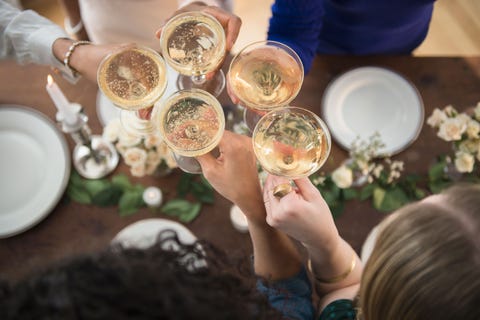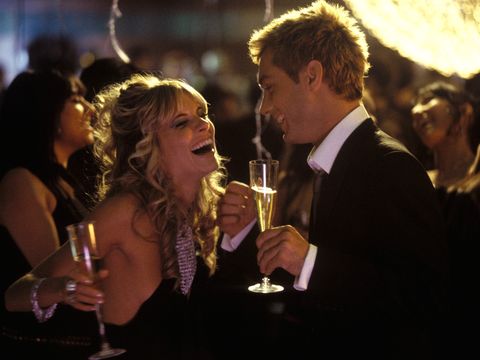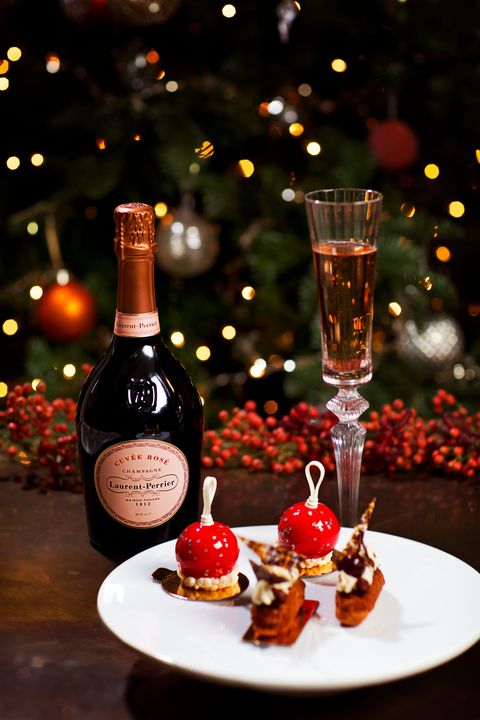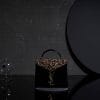‘Tis the season of festivities, food and fizz, and chances are you’ll have had your fair share of bubbles already this December. But are you really making the most of your champagne? Are you storing it correctly, pouring it properly, and pairing it with the right foods? We spoke to Daniel Brennan, PR and communications director at Champagne Laurent-Perrier, to get the low-down on drinking fizz the right way.
Store it properly
“Champagne should be stored in a well-chilled environment at a temperature of around 6 to 10°C. The bottles are best stored on their side, and should be kept away from bright or artificial light.”
Take your time pouring
“When serving, start by pouring a little champagne into each glass to allow the bubbles to settle. Once you’ve added to all glasses, return to the first and its foam should already have settled, making the champagne less likely to froth. Do not tilt the glass, it’s not a beer! Simply pour the champagne gently down the inside of the glass for the perfect serve.”

Coupe or flute?
“This is down to the personal preference of the host. While traditional champagne coupes look the part, serving champagne in tulip shaped flutes produces more bubbles. This is due to the concentration of bubbles at the base of the glass, not to mention that bubbles capture the flavour and aromas of the champagne. So, the more bubbles, the more likely it is that the wine’s characteristics will develop.
Avoid washing champagne glasses in a dishwasher as they get coated in soap solution, which deters bubbles from forming and results in the champagne going flat.”
Don’t serve it too cold… or too warm
“The important thing to remember is the chilling temperature determines the rate at which bubbles in a champagne are released. For this, I’d recommend a chilling temperature of 4.5 to 7˚C. If the champagne is too cold this will slow down the bubble formation and could impair the aroma and taste. However, champagne should not be opened at room temperature as the wine will quickly froth up and go flat, which is not ideal when hosting.”

Pair your food wisely
“The first thing to consider when pairing champagne with food is to look at the levels of sweetness and salt in a dish. When accompanying sweet dishes, champagne can taste bitter and less fruity so is better paired with an even sweeter champagne. The sweetness of the candied fruit flavours in Laurent-Perrier’s Harmony (Demi-Sec), for example, works perfectly with the sweet tasting dim sum.
“Salty dishes do the opposite and make champagne taste fruitier, as well as balancing out the acidity of the drink. For instance, a classic shepherd’s pie really brings out the pronounced summer berry flavours in Laurent-Perrier’s Cuvée Rosé.
“The flexibility in Champagne Laurent-Perrier’s innovative portfolio of eight champagnes means the drink is not only for serving with caviar and canapés, but can also be enjoyed alongside a diverse range of scrumptious meals.”
Don’t add ice
“We’d never recommend serving any of our champagne with ice. The ice will dilute the pronounced flavours of each bottle, as well as killing the bubbles in each drink.”
Invest in a champagne stopper to make it last
“It can sometimes be tricky to finish a bottle of champagne, but it’s always a shame to let it go to waste. While there is some science behind the myth with the teaspoon trick, we’d always recommend using a champagne stopper to prevent champagne from losing its fizz. This will keep the champagne fresh for up to two days when refrigerated.”
… but ideally drink it all straight away
“As soon as a bottle of champagne is uncorked, the bubbles rise inside the bottle, and the drink begins to lose its fizz. With this in mind, we’d recommend that once opened, the champagne is served on the night.”




